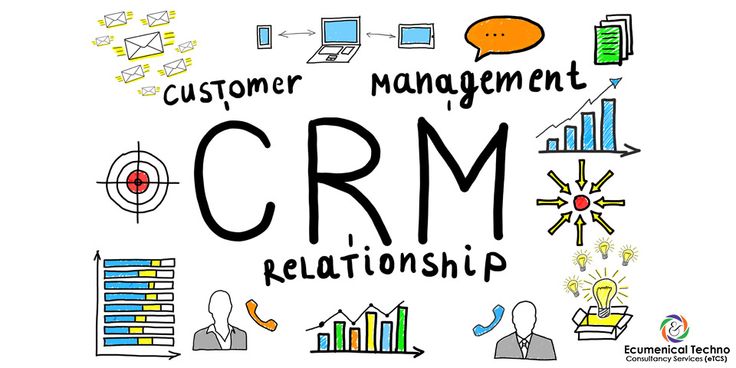In today’s competitive business landscape, Customer Relationship Management (CRM) has become a critical tool for businesses seeking to enhance their relationships with customers. CRM involves the strategies, practices, and technologies that organizations use to manage and analyze customer interactions and data. With a focus on improving customer satisfaction, retention, and overall sales growth, CRM systems enable businesses to deliver personalized and timely customer experiences.
Introduction to CRM

Definition of CRM
Customer Relationship Management (CRM) refers to a comprehensive strategy that combines people, processes, and technology to manage customer relationships. It helps organizations streamline their interactions with customers, centralizing valuable information to build stronger relationships.
Importance of CRM in Modern Businesses
In an age where customer experience is paramount, CRM systems help companies improve their understanding of customer needs. By managing data effectively, businesses can deliver personalized services and anticipate customer requirements, making CRM indispensable for customer-centric companies.
Objectives of CRM
The primary goals of CRM are to improve customer satisfaction, increase sales, and foster long-term customer loyalty. A well-executed CRM strategy enables businesses to connect with customers on a deeper level, thereby improving both the customer experience and overall operational efficiency.
Key Features of CRM Systems
CRM systems come with a suite of powerful tools to automate and streamline key customer-facing functions. Here are some of the most important features:
Contact Management
One of the core features of CRM is contact management, which organizes customer data in a central database. It includes essential details such as contact information, purchase history, and communication preferences. This enables sales and support teams to provide personalized interactions.
Sales Management
Sales teams rely on CRM systems to track leads, manage sales pipelines, and monitor conversion rates. By having access to real-time data, sales representatives can prioritize high-value prospects, improve forecasting, and close deals more effectively.
Marketing Automation
Marketing departments use CRM to automate tasks such as email marketing, campaign management, and social media engagement. CRM software can segment customers based on demographics, behaviors, and preferences, ensuring targeted, relevant marketing efforts.
Customer Support
CRM systems include tools for tracking customer service interactions and managing support tickets. This ensures that customers’ issues are resolved in a timely manner, while also helping to identify recurring issues or areas for improvement.
Analytics and Reporting
Advanced CRM systems provide analytical tools that offer insights into customer behavior, sales trends, and marketing performance. This data-driven approach allows businesses to make informed decisions, optimize processes, and measure the ROI of their CRM efforts.
Benefits of CRM Implementation

CRM implementation offers numerous advantages that extend across various areas of the business. Let’s explore some key benefits:
Enhanced Customer Service
By having access to detailed customer profiles, support agents can personalize their service, reducing response times and improving overall satisfaction. This deeper understanding of each customer’s preferences leads to more effective issue resolution and proactive service delivery.
Increased Sales and Revenue
CRM systems streamline the sales process by automating lead capture, nurturing, and conversion. With better insights into customer needs and behavior, sales teams can close more deals, upsell existing customers, and ensure higher conversion rates.
Improved Customer Retention
A CRM system helps businesses maintain long-term relationships with customers by monitoring satisfaction levels and engagement. By delivering tailored experiences, sending timely reminders, and anticipating needs, CRM systems boost loyalty and reduce churn.
Data-Driven Decision Making
By consolidating all customer-related data, CRM systems provide a single source of truth that empowers businesses to make data-driven decisions. These insights can guide product development, marketing strategies, and customer engagement efforts.
Types of CRM Systems
CRM systems are designed to cater to different business needs. There are three primary types of CRM systems:
Operational CRM
Operational CRM focuses on automating and streamlining customer-facing processes such as sales, marketing, and service. It integrates various functions to improve efficiency, reduce human error, and enhance the customer experience. For example, an operational CRM might automatically assign leads to sales reps based on criteria like region or product interest.
Analytical CRM
Analytical CRM focuses on analyzing customer data to improve decision-making and strategic planning. It uses customer data to identify patterns, trends, and opportunities. For instance, businesses can analyze purchasing behavior to predict future demand or segment customers for personalized marketing campaigns.
Collaborative CRM
Collaborative CRM focuses on improving communication and collaboration between different business departments, such as sales, marketing, and customer service. By sharing customer data across teams, businesses ensure that all customer-facing functions are aligned and can provide consistent, high-quality service.
Recent Trends in CRM Technology

As technology continues to evolve, CRM systems are adapting to meet the demands of modern businesses. Here are some of the latest trends:
Integration of AI and Machine Learning
Artificial Intelligence (AI) and machine learning are becoming an integral part of CRM systems. These technologies help automate repetitive tasks like data entry and lead scoring. AI-powered chatbots can engage customers in real time, while machine learning algorithms predict customer behavior and personalize marketing efforts.
Cloud-Based CRM Solutions
Cloud-based CRM systems have gained popularity due to their flexibility and cost-effectiveness. Unlike traditional on-premise solutions, cloud CRMs offer real-time access, remote collaboration, and scalability. Businesses can easily scale their CRM as they grow, without worrying about infrastructure or maintenance.
Enhanced Security Protocols
With the increasing amount of sensitive customer data stored in CRM systems, businesses are placing a greater emphasis on data security. Modern CRM platforms implement robust encryption, multi-factor authentication, and compliance with data protection regulations like GDPR to ensure customer information is secure.
Role of AI in Modern CRM
Automating Routine Tasks
AI can automate routine CRM tasks, such as data entry, lead scoring, and customer segmentation. By reducing the time spent on manual tasks, sales and support teams can focus on higher-value activities, improving overall efficiency.
Predictive Insights for Customer Behavior
AI-driven analytics provide valuable insights into customer behavior, predicting future actions like purchasing decisions or service requirements. This allows businesses to proactively address customer needs, providing personalized recommendations and offers.
Personalization in Customer Interactions
AI enables hyper-personalization, tailoring messages, content, and product recommendations based on individual customer preferences. For example, e-commerce businesses can use AI to suggest products that a customer is likely to purchase, improving conversion rates and customer satisfaction.
Cloud-Based CRM: Advantages and Challenges
Benefits of Real-Time Access and Collaboration
Cloud-based CRM systems enable employees to access customer data from anywhere, at any time, as long as they have an internet connection. This facilitates real-time collaboration between teams, making it easier to respond to customer inquiries and provide a seamless experience.
Cost Efficiency of Cloud Solutions
Cloud CRMs are often more cost-effective than traditional on-premise solutions. They eliminate the need for expensive hardware, maintenance, and upgrades. Businesses typically pay a subscription fee, which is more predictable and scalable than one-time software purchases.
Addressing Data Privacy and Security Concerns
While cloud-based CRMs offer flexibility, they also raise concerns about data security and privacy. To mitigate these risks, many cloud CRM providers invest heavily in encryption and security measures, ensuring that customer data remains protected.
CRM’s Impact on Business Operations
CRM systems have a profound effect on various business operations:
Streamlining Sales Processes
By automating lead capture, tracking, and follow-ups, CRM systems make the sales process more efficient. Sales teams can prioritize high-value leads, track progress, and close deals faster, ultimately boosting sales performance.
Improving Marketing Campaigns
CRM enables businesses to design and execute more effective marketing campaigns by segmenting customers based on their behavior and preferences. Targeted email campaigns, for example, can increase engagement and conversion rates.
Enhancing Customer Service Workflows
CRM systems help customer service teams manage inquiries and resolve issues efficiently. By tracking service requests and providing real-time updates, businesses can ensure that customers receive timely and accurate support.
Challenges in CRM Implementation
Despite its numerous benefits, CRM implementation can come with challenges:
Cost and Resource Considerations
Implementing a CRM system requires significant investment in terms of both money and time. Businesses must allocate resources for software purchase, customization, training, and ongoing support.
Integration with Existing Systems
CRM systems need to integrate seamlessly with other business systems, such as ERP or accounting software. Compatibility issues can arise, especially if businesses are using legacy systems that are difficult to integrate.
Training and User Adoption
Employees must be adequately trained to use the CRM system effectively. Resistance to change and lack of training can hinder adoption, reducing the system’s effectiveness.
Future of CRM

Looking ahead, CRM is expected to continue evolving with emerging technologies:
Emerging Technologies and Innovations
Advancements in AI, blockchain, and IoT will further enhance CRM capabilities. For example, AI-driven chatbots will become even more sophisticated, and IoT devices will provide real-time data to personalize customer experiences.
Increasing Focus on Customer-Centric Strategies
The future of CRM will be more focused on customer-centricity, with businesses increasingly investing in customer experience management (CEM) platforms to deliver seamless, personalized interactions.
Predictions for CRM’s Role in Business Growth
CRM systems will continue to be a central hub for businesses, helping to drive revenue, improve customer satisfaction, and foster innovation. As businesses grow, CRM systems will adapt to meet their evolving needs, enabling them to maintain strong customer relationships at scale.
Conclusion
CRM is no longer just a tool for managing customer information—it’s a critical component of modern business strategies. By providing a 360-degree view of customer interactions, CRM systems enable businesses to personalize their services, streamline processes, and improve overall performance. As technology evolves, CRM systems will continue to offer innovative solutions, helping businesses stay competitive in a rapidly changing marketplace.










